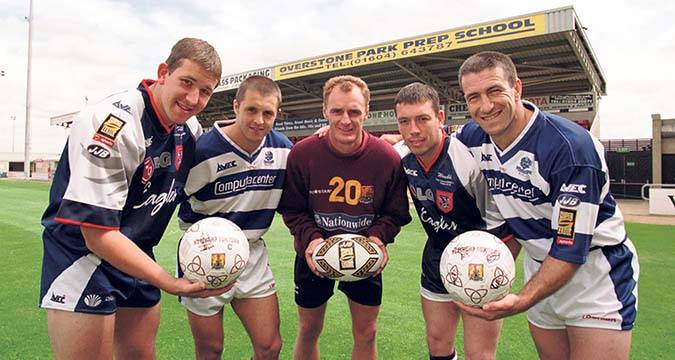 SUPER League has often been accused of being, in the main, confined in an M62 straitjacket.
But 25 years ago, the competition boldly broke free and spread its wings - if only for 17 days.
When the fixture planners got to work ahead of the 1998 campaign, the third after the big switch to summer rugby and the first in 25 years to feature play-o
SUPER League has often been accused of being, in the main, confined in an M62 straitjacket.
But 25 years ago, the competition boldly broke free and spread its wings - if only for 17 days.
When the fixture planners got to work ahead of the 1998 campaign, the third after the big switch to summer rugby and the first in 25 years to feature play-o 25 years ago, Super League went ‘on the road’ …
 SUPER League has often been accused of being, in the main, confined in an M62 straitjacket.
But 25 years ago, the competition boldly broke free and spread its wings - if only for 17 days.
When the fixture planners got to work ahead of the 1998 campaign, the third after the big switch to summer rugby and the first in 25 years to feature play-o
SUPER League has often been accused of being, in the main, confined in an M62 straitjacket.
But 25 years ago, the competition boldly broke free and spread its wings - if only for 17 days.
When the fixture planners got to work ahead of the 1998 campaign, the third after the big switch to summer rugby and the first in 25 years to feature play-o 